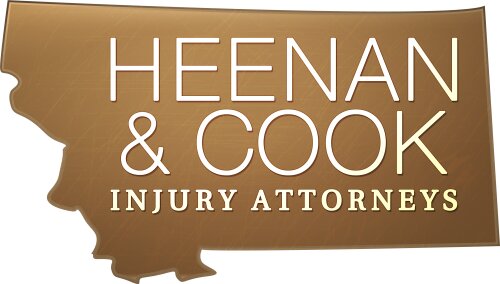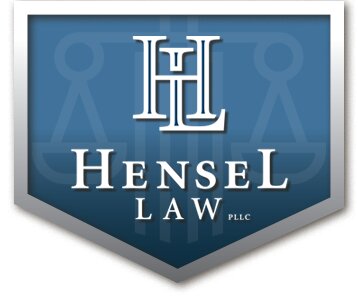Best Insurance Fraud Lawyers in Billings
Share your needs with us, get contacted by law firms.
Free. Takes 2 min.
List of the best lawyers in Billings, United States
1. About Insurance Fraud Law in Billings, United States
In Billings, Insurance fraud is primarily governed by Montana state law and enforced by state authorities, with local prosecutors handling cases in Yellowstone County courts. An insurance fraud offense occurs when someone knowingly makes false statements or inflates a loss to obtain money from an insurance company. The crimes can involve auto, property, health, or workers’ compensation claims, and they may be charged as crimes or civilly pursued for recovery.
Montana maintains a dedicated focus on investigating and prosecuting insurance fraud through the state's Insurance Fraud Control Bureau, which works with local law enforcement and prosecutors to identify schemes and recover losses. Criminal charges can carry substantial penalties, including fines, restitution, and potential imprisonment, depending on the severity and specifics of the case.
“Montana's Insurance Fraud Control Bureau investigates and prosecutes insurance fraud across the state, including in Billings.” - Montana Department of Justice
Additionally, Montana statutes and administrative rules set out definitions, prohibited acts, and the procedures for investigations. Because the law can change and enforcement practices vary by case, consulting a Montana-licensed attorney who handles insurance fraud matters is essential for accurate guidance. For official guidance, see state resources linked below.
Montana Department of Justice and Montana State Legislature provide authoritative information about how insurance fraud is defined, investigated, and prosecuted in Montana.
2. Why You May Need a Lawyer
Renting or owning a home, driving in Billings, or running a business can bring you into contact with insurance claims that may trigger fraud investigations. A trained attorney can help you understand the charges, rights, and defenses available in your case. Below are concrete, real-world scenarios where legal counsel is typically essential in Billings.
- Scenario 1: You are accused of filing a false auto insurance claim after a collision on I-90 near Billings. Investigators may allege that you misrepresented the extent of damages or injuries. An attorney can review the claim record, challenge improper statements, and negotiate with prosecutors and the insurer to protect your rights.
- Scenario 2: Your business is investigated for inflating property damage after a hailstorm in a commercial building in Billings. A lawyer can help you gather credible evidence, ensure proper reporting, and defend against inflated-loss charges or civil recovery actions.
- Scenario 3: A homeowner is accused of staging a loss to file a fraudulent homeowners insurance claim after a fire or theft in Billings. A solicitor can advise on preservation of evidence, potential defenses, and the best path through the investigation and any charges.
- Scenario 4: You face an allegation of health care or workers’ compensation fraud linked to services in Billings clinics or employers. An attorney can review billing records, compliance practices, and potential miscommunications that trigger charges.
- Scenario 5: You are a legitimate claimant who fears your rights are being misinterpreted, or you face a denial based on alleged misrepresentation. A lawyer can help contest the denial, correct record discrepancies, and pursue appropriate remedies.
- Scenario 6: You are contacted by investigators for a soft fraud review involving exaggerated claims for a Billings property loss. An attorney can negotiate with investigators and insurers to clarify the claim and minimize risks of prosecution.
In all cases, a qualified attorney can explain potential defenses, protect your constitutional rights, and communicate with insurers and prosecutors in clear, factual terms. Early legal representation often improves outcomes by guiding evidence collection and strategy.
3. Local Laws Overview
Montana law governs insurance fraud through state statutes and regulatory rules. In Billings, this means state-level definitions, penalties, and procedures apply, enforced by local prosecutors and the Montana Department of Justice. The following are representative, widely cited concepts you may encounter.
Montana Insurance Fraud Statute (general term used in practice) - A state-wide statute that criminalizes false statements, inflated losses, and staged events intended to deceive an insurer or obtain improper payment. The statute is enforced by Montana law enforcement and prosecuted in state courts.
Montana False Claims Act (civil remedies for fraud against state programs) - This statute allows the state or its agencies to pursue civil actions for submitting false or fraudulent claims tied to state-funded programs, including some insurance-related matters. It is sometimes used in conjunction with criminal proceedings or in parallel civil actions.
Montana Consumer Protection Act (deceptive practices) - This law governs unfair or deceptive acts or practices, which can apply to misrepresentations in the insurance arena when dealing with consumers and insurers. It provides civil remedies for victims and can accompany criminal proceedings depending on the facts.
Recent legislative activity in Montana has addressed enforcement tools and penalties related to insurance fraud. For exact citations, dates, and changes, consult the Montana Legislature’s official site and current code references.
Key official resources to verify statutes and updates:
- Montana State Legislature - official source for statutes and bill history.
- Montana Department of Justice - Insurance Fraud Unit information and guidance.
“Recent updates in Montana statutes in this area reflect increased penalties and extended definitions for certain staged or electronic fraud schemes.” - Montana Legislature
4. Frequently Asked Questions
What is insurance fraud in Montana?
Insurance fraud involves knowingly submitting false statements or inflating losses to obtain money from an insurer. It includes auto, property, health, and workers’ compensation claims.
How do I know if I am being investigated for insurance fraud?
Notice from an insurer or a state agency, requests for documents, or interviews with investigators can signal an inquiry. Always consult an attorney before speaking with investigators.
When should I hire a Montana insurance fraud lawyer?
Consider hiring before answering questions from investigators or if you face formal charges, a subpoena, or a potential arrest. Early guidance helps protect rights.
Where do I find a qualified insurance fraud attorney in Billings?
Look for lawyers with experience in criminal defense and insurance law in Montana. Check Bar Association listings and ask for client references from similar cases.
Why is a specialized attorney important in these cases?
Insurance fraud cases often involve complex evidence, regulatory procedures, and potential collateral consequences. A specialist can craft a targeted defense strategy.
Can I negotiate a plea deal in an insurance fraud case?
Yes, through negotiation with the prosecutor and with legal counsel. A lawyer can assess options, including charges, sentencing, and restitution.
Should I talk to investigators without a lawyer present?
Generally no. Anything you say could be used against you. An attorney should accompany you to all interviews.
Do I need to testify in court for insurance fraud cases?
It depends on the case. Your attorney will advise whether testimony is beneficial and how to prepare for it if required.
Is there a difference between soft fraud and hard fraud?
Yes. Soft fraud involves exaggerating legitimate claims, while hard fraud involves intentional fabrication or staged losses. The legal consequences can differ.
How long can insurance fraud cases take in Billings?
Case duration varies widely. Criminial cases can take months to years depending on complexity, discovery, and court schedules.
What costs are involved in hiring a lawyer for insurance fraud?
Fees vary by case and attorney. Expect consultation fees, hourly rates, and possible retainer plus case-specific costs for investigators and experts.
What should I bring to the initial consultation?
Bring any notices, claims records, correspondence with insurers, bills, police reports, and names of any witnesses. This helps the attorney assess your situation.
5. Additional Resources
These official resources provide authoritative information on insurance fraud, legislation, and enforcement in Montana and the United States.
- Montana Department of Justice - Insurance Fraud Unit - Investigates and prosecutes insurance fraud within Montana, including Billings. Functions: enforcement, investigation, and public guidance.
- Montana State Legislature - Official statutes, bill histories, and legislative changes affecting insurance fraud and related consumer protection laws.
- FBI - Insurance Fraud - Federal perspective on insurance fraud, enforcement priorities, and reporting guidance.
For civil remedies and consumer protections related to deceptive practices, you may also consult the Montana Consumer Protection Act through official state resources.
6. Next Steps
- Assess your situation - Write down dates, claims, communications, and any notices you received. Do this within 48 hours of first contact if possible.
- Confirm jurisdiction and charges - Determine whether the issue is criminal or civil, and confirm that Montana law applies to your case in Billings.
- Research qualified attorneys - Look for Montana-licensed attorneys with insurance fraud and criminal defense experience in Billings or Yellowstone County.
- Schedule a consultation - Book a focused meeting to discuss the facts, potential defenses, and likely timelines. Bring all documents.
- Ask about fees and strategies - Clarify hourly rates, retainer, and the plan for handling investigation steps and potential trials.
- Check credentials and references - Verify bar status and any disciplinary actions. Request client references from similar cases.
- Decide and engage a lawyer - Select the attorney who offers clear explanations, transparent communication, and a practical plan for your goals.
Lawzana helps you find the best lawyers and law firms in Billings through a curated and pre-screened list of qualified legal professionals. Our platform offers rankings and detailed profiles of attorneys and law firms, allowing you to compare based on practice areas, including Insurance Fraud, experience, and client feedback.
Each profile includes a description of the firm's areas of practice, client reviews, team members and partners, year of establishment, spoken languages, office locations, contact information, social media presence, and any published articles or resources. Most firms on our platform speak English and are experienced in both local and international legal matters.
Get a quote from top-rated law firms in Billings, United States — quickly, securely, and without unnecessary hassle.
Disclaimer:
The information provided on this page is for general informational purposes only and does not constitute legal advice. While we strive to ensure the accuracy and relevance of the content, legal information may change over time, and interpretations of the law can vary. You should always consult with a qualified legal professional for advice specific to your situation.
We disclaim all liability for actions taken or not taken based on the content of this page. If you believe any information is incorrect or outdated, please contact us, and we will review and update it where appropriate.









